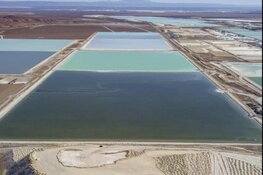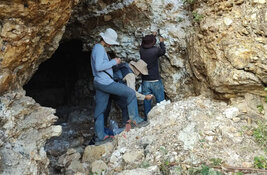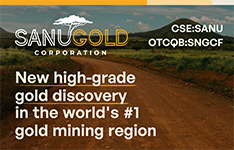BYD Company Ltd. (BYDDF:OTCBB) (Build Your Dreams), a leading Chinese electric vehicle (EV) and battery manufacturer, has taken a significant step in strengthening its global lithium supply chain by acquiring mining rights in Brazil’s lithium-rich Jequitinhonha Valley. Public records reveal that BYD’s Brazilian subsidiary, Exploração Mineral do Brasil, secured the rights to two plots of land in late 2023, positioning itself near Atlas Lithium Corp.’s (ATLX.O) ongoing exploration projects in Coronel Murta.
This move marks BYD’s first concrete venture into the Western Hemisphere’s mining sector, aligning with its broader strategy of securing essential resources for EV battery production. The acquired plots are also strategically located about 825 kilometers (512 miles) from BYD’s new EV manufacturing plant under construction in Bahia state, which is expected to produce up to 150,000 electric cars annually once operational. The proximity of the plots to the factory supports BYD’s plan to vertically integrate its operations, reducing reliance on external suppliers for critical materials like lithium.
Founded in 1995 by Wang Chuanfu, BYD began as a battery manufacturer and later acquired Xi'an Qinchuan Automobile in 2003 to form BYD Auto. The company launched its first plug-in hybrid EV in 2008 and followed it up with its first battery-electric vehicle in 2009. Since then, BYD has expanded its product portfolio to include electric cars, buses, trucks, forklifts, energy storage systems, solar panels, semiconductors, and even a rail transit network.
In 2023, BYD became the world’s top-selling battery-electric vehicle manufacturer, surpassing competitors like Tesla. It also became the best-selling car brand in China, with its automotive business contributing over 80% of the company’s total revenue. BYD’s global expansion has led to manufacturing facilities in the United States, Hungary, and Brazil, where it continues to establish itself as a dominant force in the EV and energy storage markets.
Lithium Sector Overview: Tightening Supply, Global Expansion, and Strategic Shifts
The global lithium sector entered 2025 with signs of a tightening market, following years of oversupply and price declines. According to a January 14 report by USA News Group, industry analysts forecasted a significant reduction in lithium carbonate equivalent (LCE) surplus from nearly 150,000 tonnes in 2024 to around 80,000 tonnes in 2025. Benchmark analysts projected that an investment of US$116 billion would be required by 2030 to meet electric vehicle (EV) production targets and avert future supply shortages.
The global demand for lithium remained strong, driven primarily by EV production and energy storage needs. Precedence Research estimated that the global lithium market could reach US$28.45 billion by 2033, growing at a compound annual growth rate (CAGR) of 12.5%. Additionally, Bank of America forecasted a shift from oversupply to a potential lithium deficit by 2027, with 2025 likely representing the peak of the current surplus.
Geopolitical shifts also played a role in the lithium sector’s outlook. On January 15, Cecilia Jamasmie of Mining.com reported that Saudi Arabia had launched a new joint venture between Aramco and Ma’aden to scale up lithium production by 2027. Nasser al-Naimi, Aramco’s president of exploration and production, stated, "We expect that this partnership will leverage the world’s leading upstream enterprise . . . with a view to meeting the kingdom and potentially the world’s projected lithium demand."
Market conditions remained volatile, as reported by Fastmarkets on February 5. Their projections showed global lithium production reaching nearly 1.2 million tonnes of LCE in 2024, up from just over 737,000 tonnes in 2022. However, slower-than-expected EV adoption rates contributed to persistent oversupply, narrowing the surplus to 154,000 tonnes by the end of 2024. Paul Lusty, head of battery raw material analytics at Fastmarkets, noted, "Lithium market conditions—particularly during the latter part of 2024—led to growing producer restraint, both in China and elsewhere."
According to a February 24 report by DataM Intelligence, the global lithium market was valued at US$9.3 billion in 2023 and is projected to reach US$38.8 billion by 2031. This growth is expected to occur at a compound annual growth rate (CAGR) of 19.5% from 2024 to 2031. The report highlighted that the increasing demand for lithium stems from its critical role in rechargeable batteries for electric vehicles (EVs) and portable electronics, as well as applications in ceramics, glass production, and renewable energy storage. However, the report also noted significant environmental and geopolitical challenges related to lithium extraction, particularly as global demand continues to rise. The research identified major market players, including FMC, Critical Elements Corporation, and Galaxy Resources Limited, as key contributors to this expansion.
In a significant shift within the energy sector, major oil companies have begun making strategic investments in lithium production. A February 24 report by Petroleum Australia revealed that companies such as ExxonMobil, Equinor, and Rio Tinto have secured lithium assets, particularly in North America. ExxonMobil signed a non-binding agreement with LG Chem to potentially supply up to 100,000 metric tonnes of lithium from its proposed project in Arkansas. Meanwhile, Equinor invested up to US$133 million for a 45% stake in Standard Lithium’s projects in Arkansas and Texas, signaling a diversification beyond fossil fuels.
BYD Strengthens Global Lithium Strategy with Strategic Move into Brazil’s Mining Sector
BYD’s entry into Brazil’s mining sector highlights its growing ambitions in securing a stable supply of lithium, a critical resource for EV batteries. This move aligns with its broader global strategy, which previously included bids for Chilean lithium projects and plans for a lithium cathode plant in northern Chile.
The plots acquired by BYD are adjacent to Atlas Lithium’s ongoing exploration projects in Coronel Murta, a key region within Brazil’s “Lithium Valley.” Atlas CEO Marc Fogassa, commenting on BYD’s acquisition, said, “If they invested in these two areas, it is because they saw the potential, and this obviously makes my areas more valuable.”
Brazil has become a focal point for global lithium investments, drawing interest from the U.S., China, and Saudi Arabia. Unlike its South American neighbors, Brazil has avoided heavy state intervention in its lithium sector, even easing export controls in 2022 to attract foreign investment. The country's lithium deposits are primarily hard rock, offering a more straightforward mining process compared to the complex extraction required for salt flats in Argentina, Bolivia, and Chile.
While BYD’s mining project remains in its early stages, with geological research firm Minagem Geologia e Mineração contracted for exploration activities, attorney Luiz Fernando Visconti of Visconti Law noted that it could take 8–15 years for any Brazilian mining project to reach production if deemed economically viable.
BYD’s move into Brazil’s lithium sector not only strengthens its global supply chain but also enhances its position in Latin America’s largest economy, where it continues to expand its footprint despite facing challenges, including recent labor abuse allegations at its Bahia factory construction site.
Ownership and Share Structure
According to Refinitiv, 39.04% of BYD Company is owned by Institutions. Of those, Blackrock Institutional Trust Company owns 3.64%, The Vanguard Group holds 3.20%, Schroder Investment Management holds 2.69%, Fidelity Management & Research Company holds 1.85%.
Holding company Berkshire Hathaway Inc owns 4.94%. Management and Insiders own .14%. Ther rest is retail.
BYD Company has a market cap of US$148,978.84 million, 1,042.3 million free float shares, and a 52 week range of US$182.50–398.60.
| Want to be the first to know about interesting Cobalt / Lithium / Manganese investment ideas? Sign up to receive the FREE Streetwise Reports' newsletter. | Subscribe |
Important Disclosures:
1) James Guttman wrote this article for Streetwise Reports LLC and provides services to Streetwise Reports as an employee.
2) This article does not constitute investment advice and is not a solicitation for any investment. Streetwise Reports does not render general or specific investment advice and the information on Streetwise Reports should not be considered a recommendation to buy or sell any security. Each reader is encouraged to consult with his or her personal financial adviser and perform their own comprehensive investment research. By opening this page, each reader accepts and agrees to Streetwise Reports' terms of use and full legal disclaimer. Streetwise Reports does not endorse or recommend the business, products, services or securities of any company.
For additional disclosures, please click here.










































